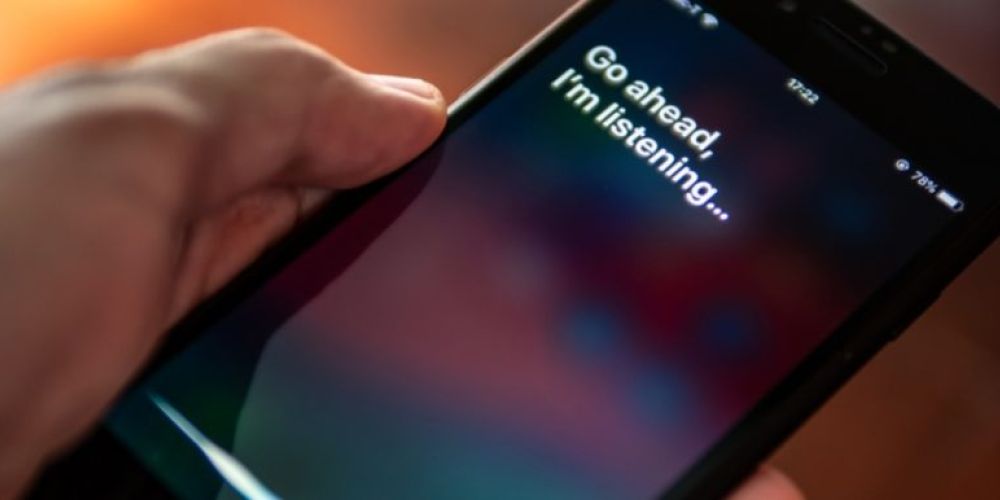Hey Alexa, tell me about the Future of Paid Voice Search?

“Hey Alexa — find me a nearby pizza restaurant”
“Ok Google — wake me up at 8 am with pop music”
“Hey Siri — how do you make chocolate chip cookies?”
If you’re not already using voice search as an integral part of your daily life, then you’re definitely in the minority.
Since the introduction of Apple’s voice assistant Siri, with the launch of the iPhone 4S in 2011, voice devices have come a long way and have grown immensely. Following Siri, Google Assistant was launched on the Android platform as well as Microsoft’s Cortana. Then in 2014, Amazon introduced the Alexa voice assistant and Echo smart speaker, changing technology and life as we know it today. After Alexa’s launch, this initiated the rise of the Smart Speaker, with “Hey Alexa” and “Ok Google” quickly becoming a part of many household conversations.
Smart speakers have achieved widespread popularity; according to a report taken from last year, an estimated 47.3 million people in the United States own a smart speaker, which equates to roughly one in five adults (The Voicebot Consumer Adoption Report 2018). In the U.K, a 2018 report found that one in every eight households now has a smart speaker (Ofcom). Moreover, according to recent statistics, 20% of all searches on mobile devices are now made using voice search, with experts predicting that by 2020, 50% of all searches will be made by voice (Quora Creative).
Clearly, voice search is rapidly on the rise, perhaps, due to the convenience of being completely hands free, with no effort required whatsoever. So, what does this revolution mean for the future of digital marketing?
As of mid-2019, voice search conducted from a smart speaker or voice assistant is not monetised with paid advertising. Unlike traditional search, this means that voice search provides ad-free results – at least for now. As smart speakers become increasingly more prevalent, it is only a matter of time before voice search becomes monetised by the likes of Amazon and Google.
The Future of Paid Voice Search
Potential Backlash
In an article on the subject, Rebecca Sentance argues that perhaps one of the reasons that companies have been hesitant so far to introduce paid voice search advertising, is because of its potential to be a lot more intrusive and irksome than visual or text-based advertising (Econsultancy).
Since you would be unable to scroll past or skip over a voice advertisement, it is likely that paid voice search would irritate many. Equally, voice search ads would likely diminish user trust. For instance, if the only response to an individuals’ query of “Hey Alexa, find me a nearby pizza restaurant” is a paid one, then why would an individual trust the sponsored answer they receive? This critical response to voice advertising was even evidently demonstrated in early 2017, after a huge backlash rose following Google Home smart speaker devices delivering what appeared to be an advertisement to its owners for the newly released Beauty and the Beast film. Despite Google adamantly denying the plug was intended as an ad, the backlash faced suggests that the future for paid voice search does not look bright.
Similarly, a recent survey depicts that 62% of consumers would reject voice search ads (business2community). Nevertheless, just under 40% said they would be open to ads from their voice assistants/smart speakers if they were “relevant” (business2community). As a result, this survey suggests that voice ads may not be completely despised, if they are interpreted as relevant by users.
How to Prepare for Paid Voice Search
No one knows exactly how a future of paid voice search would play out, and thus how we can possibly prepare for it. Where would it sit within the search results? What would it sound like? Would it be an optionable feature, or be forced upon its users?
The implementation of voice search advertising is very likely to be already in the works by the major companies, but the question on every digital marketer’s mind is when it will be arriving. Whilst there are rumours circulating that Amazon have approached some big consumer brands about advertising options for their Alexa devices, this has been denied by the company. By 2020, it was predicted that 75% of US households would own a voice-activated device (Gartner). However, 2020 is only just around the corner and as of last year, only 13% of US households reportedly own a smart speaker (OC&C Strategy Consultants). Reassuringly, this means that digital marketers still have a lot of time to figure out how they may make the most out of paid voice search ads and hopefully, how to do so without irritating everyone.


